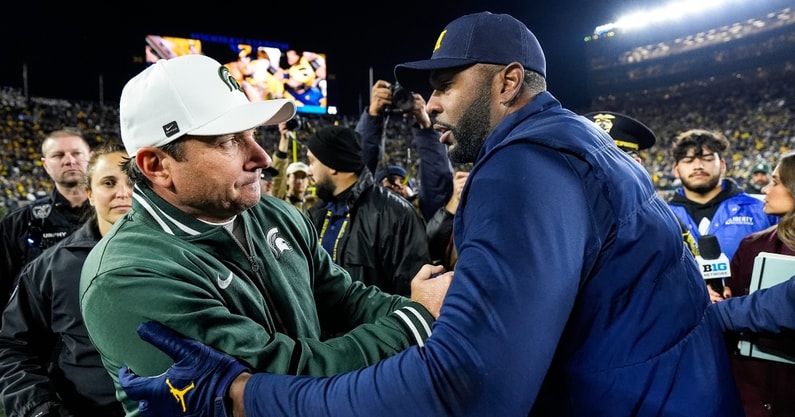Michigan introduces bill to ban reporting NIL deals to NCAA, stop schools from assisting in investigations

The newly approved House settlement has created fallout throughout the college sports world. Now, the state of Michigan has seen a bill introduced that would potentially target part of the agreement that revolves around reporting NIL deals with the NCAA and investigating those deals.
House Bill No. 4643 was introduced by Reps. Tate, Herzberg, and Rheingans last week. In it, the bill would completely ban reporting deals to the NCAA. On top of that, it would also prohibit schools from assisting in any investigation and ban athletic associations from penalizing athletes or schools for non-compliance.
While the House settlement was largely known as the settlement that would allow for revenue sharing, there’s more to it than just that. Among the other agreements in it to try and shape the future of college athletics was that NIL deals above $600 will need third-party approval. To do that, those deals are going to be sent to a new clearinghouse called NIL Go. Deloitte is set to oversee the fair compensation ranges for that.
From there, the House settlement also established a new enforcement agency called the College Sports Commission. It would be their job to handle those investigations into improper deals done outside the system that the settlement is seeking to establish.
Both the third-party approval and the new enforcement agency would be directly affected by this bill if it were to be passed and signed into law. This comes in a state with five FBS programs. That includes two Big Ten schools, Michigan and Michigan State. The Wolverines, of course, have won a national championship as recently as the 2023 season.
Notably, earlier in the year, the ACC, Big 12, Big Ten, and SEC each presented their member institutions with affiliation agreements. That would prevent universities from using state laws to violate the new enforcement rules. The price for not signing on to those affiliation agreements could be steep as well. In essence, a school risks the loss of conference membership and participation against other power league programs. It’s a tactic those conference administrators have used to, hopefully, enforce the House settlement regardless of laws.
Top 10
- 1Breaking
Wisconsin tampering
Badgers sue Miami
- 2Hot
Rece Davis
Ranks Top 5 QBs
- 3
CWS Odds
Lines set for LSU vs. Coastal
- 4Trending
CFP Predictions
12-team bracket, Champion
- 5
Coastal Carolina
Fires jab at LSU before CWS
Get the On3 Top 10 to your inbox every morning
By clicking "Subscribe to Newsletter", I agree to On3's Privacy Notice, Terms, and use of my personal information described therein.
Michigan bill shares similarities with similar bill in Tennessee
In May, Tennessee Gov. Bill Lee signed S.B. 536 into law. Considered by many to be a very athlete-friendly law, it shares some unique similarities with the one that is being brought forward by representatives in Michigan.
In it, the law states that Tennessee schools will be able to receive dollars from collectives unless told otherwise by federal law, a valid court order or antitrust laws. On top of that, it made it so the NCAA can’t create anticompetitive restrictions. Furthermore, that law sought to protect schools from any potential further legal disputes.
That amounts to, like the bill in Michigan, a pushback on the House settlement. In particular, they both appear to prohibit all of the House settlement’s limits on NIL compensation. On top of that, they both create protections for schools from investigators.
What comes next in Michigan remains to be seen. The bill will need to be passed and signed into law before the fallout can be entirely felt. It also remains to be seen if other states are going to follow suit with similar laws.